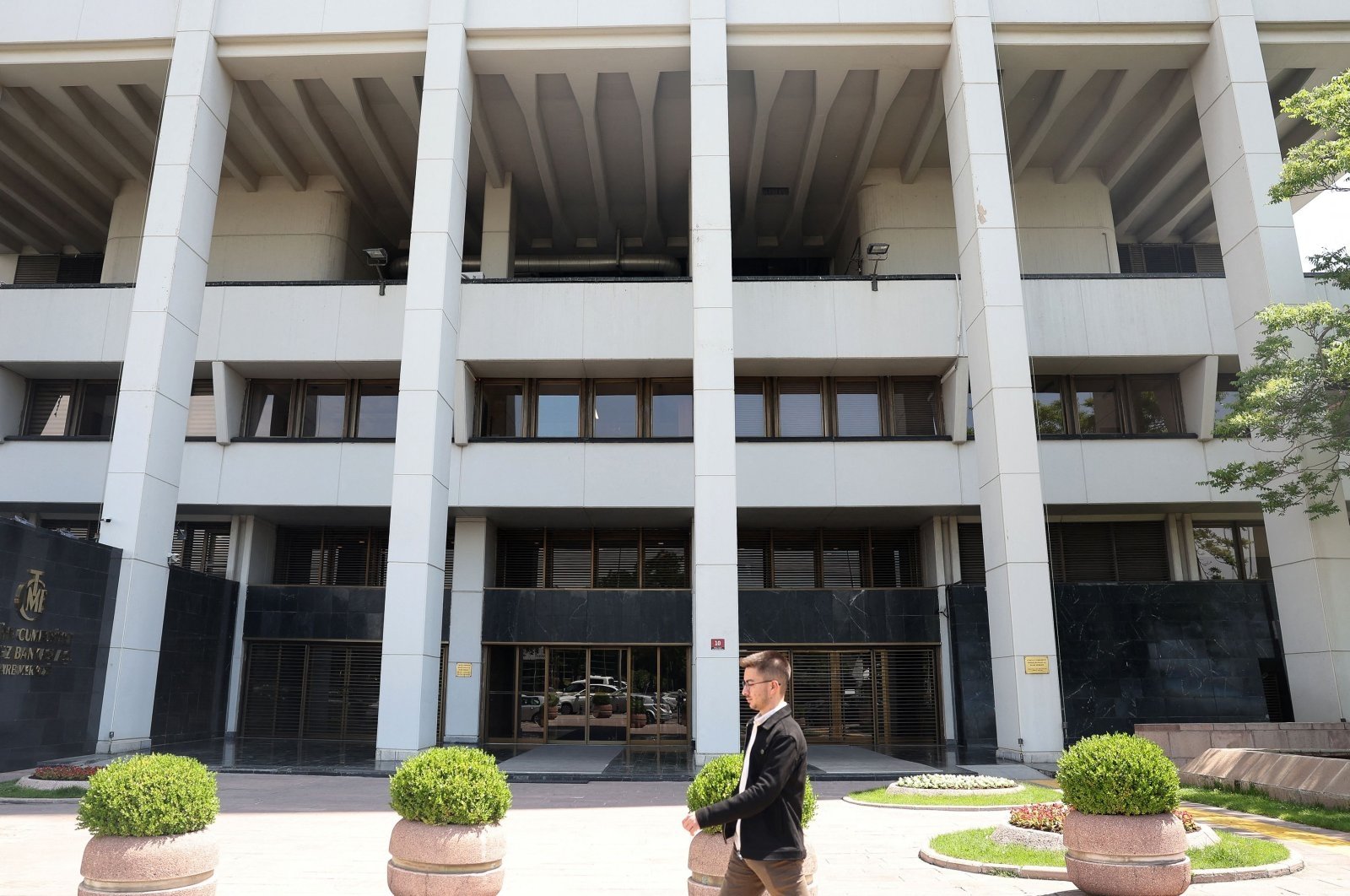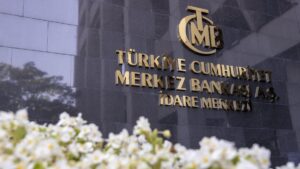Turkish central bank reserves rose by $42.9 billion (TL 1.25 trillion) from the end of May to hit a fresh record of $141.4 billion last week, according to the official data shared by the bank on Thursday.
Accordingly, the gross foreign exchange reserves of the Central Bank of the Republic of Türkiye (CBRT) jumped by $1.27 billion to $94.5 billion as of Dec. 8, up from $93.2 billion a week earlier.
During the same period, gold reserves were broadly unchanged, down by $52 million to $46.86 billion, according to the data.
The reserves stood at $98.5 billion at the end of May following the presidential and legislative elections.
The upward momentum in the reserves was observed since June after President Recep Tayyip Erdoğan appointed a new economic administration led by respected policymaker Mehmet Şimşek as Treasury and Finance Minister and former Wall Street banker Hafize Gaye Erkan as the CBRT governor.
The new administration reversed a yearslong easing cycle and embarked on an aggressive interest rate hike cycle to cool demand and rein in inflation.
Since June, the central bank lifted its key policy rate also known as the one-week repo rate by a total of 3,150 basis points – including hikes of 500 basis points in the last three months.
The bank in its latest monetary policy committee meeting last month, however, signaled that the pace of monetary tightening would slow down “with the tightening cycle to be completed in a short period.”
The next committee meeting is scheduled for Dec. 21.
The shift in policymaking has been welcomed in international circles as investors have been signaling a renewed interest in Turkish markets following the May vote.
Meanwhile, the increase in reserves resulted in the bank breaking its all-time peak for three consecutive weeks, as they rose from $136.5 billion as of the end of November to the new record of $141.4 billion on Thursday.
Amid a surge in reserves, a decrease in the risk premium and a fall in unemployment, authorities have repeatedly emphasized they began to observe what they said were positive outcomes of the the government’s policies.
Şimşek in a special interview with a local media paper on Thursday said, “The steps we have taken have started to yield results.”
“We will implement the program with patience and determination, (but) we need time,” he said.
“There is no shortcut or easy solution, but when we look at the developments in many areas in the last few months, you will see that the program is working and we are on the right track,” he underscored.
In addition, he referred to decreasing exchange volatility, a drop in the current account gap and a fall in the volume of FX-protected accounts, which the authorities initiated an exit from to boost the conversion to the standard lira accounts.
“The current account deficit is decreasing, the annualized current account gap showed an improvement of $9.6 billion in October compared to May and reached $50.7 billion,” he noted.
“The volume of deposits under the scheme stood at TL 3.3 trillion on Aug. 25. As of Dec. 1, this amount decreased to TL 2.7 trillion, which is a drop of TL 654 million,” he explained.
A separate report by Anadolu Agency (AA) on Thursday indicated that another downward threshold has been broken, as Türkiye’s credit default swap (CDS) with a decrease of 19 basis points tested the value of 300. It touched 299.9 basis points, the report said.
Official data from the country’s statistical institute earlier this week showed Türkiye’s unemployment rate fell to 8.5% in October, the lowest level in the last 11 years. The figure was welcomed by authorities as they expressed that the rate for the overall year of 2023 may be realized at a level lower than the projected 10.1% in the medium-term program, likely reaching a single-digit figure.
“The economic rebalancing” prompted the rating agency Standard & Poor’s to revise the country’s sovereign credit outlook to positive earlier this month, while some analysts, as reported by AA, are expecting that Moody’s may also improve Türkiye’s rating outlook on Dec. 15 with the impact of latest developments, namely the fall in CDS.
Some large banks, including Deutsche Bank and JPMorgan, recommend earlier clients to reconsider Turkish assets, with the former saying lira-denominated instruments may be one of the best trades among emerging markets in 2024.
According to the data released by the CBRT on Thursday, the weekly total net portfolio inflow in the week of Dec. 8 was recorded as $1.45 billion, marking the strongest inflow since July 21, 2017.




















































Be First to Comment